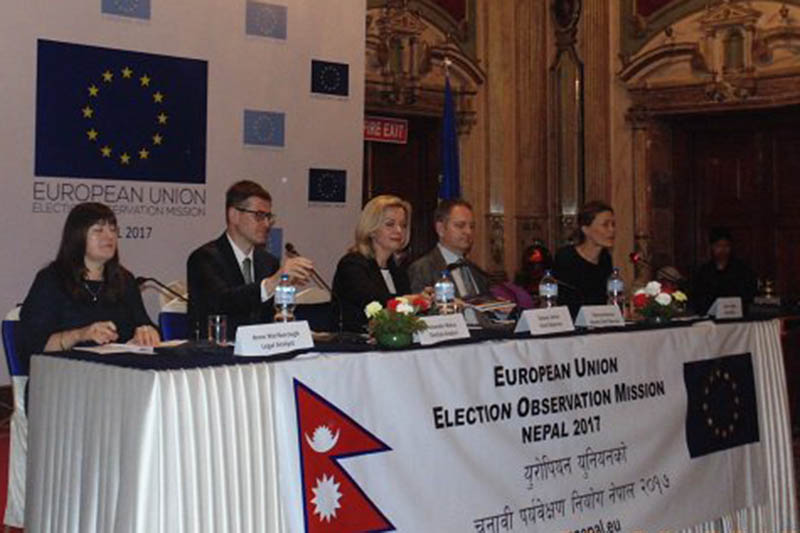EUEOM says report on elections based on int'l commitments
KATHMANDU: The European Union Election Observation Mission (EUEOM) has stated that the assessment and recommendations in the EUEOM's final report on the House of Representatives and State Assembly elections of Nepal were based on international and regional commitments for democratic elections to which Nepal is a signatory.
On March 20, 2018, Zeljana Zovko, Chief Observer of the EUEOM, had persented the final report on the House of Representatives and Provincial Assembly elections.
In a statement issued by the EUEOM on March 22, the Mission says, it concluded in its report that the legal framework for the elections offered a good basis for the conduct of elections. It reads, despite some shortcomings identified in the process, the EUEOM also welcomed the efforts made by the Election Commission to organise the elections within a very tight timeframe.
The statement further says that in line with standard practice for international election observation missions, the report offered recommendations which include the review of administrative practices, legislation and constitutions, and in so doing, the EUEOM fully abided by its terms of reference and the Memorandum of Understanding signed with the authorities of Nepal.
The suggested recommendations were widely consulted and discussed at a round-table on 28 December 2017, according to the statement.
It concludes by mentioning that all recommendations were offered by the EUEOM in a spirit of partnership, for the consideration of the host country, and that it remains up to the appreciation of the Nepali authorities and people to decide upon it in line with the Constitution and legislative framework of the country.
The EUEOM looks forward to further discussions with all stakeholders, as per the statement.
Earlier, on Wednesday, Ministry of Foreign Affairs through a press statement had said the recommendations and comments made by the EUEOM — in its final report on the House of Representatives and State Assembly elections — directly challenged the provision of the Constitution of Nepal which was promulgated in line with the inclusive policy reflective of Nepali social structure by the sovereign decision of its people.
The Ministry had further remarked that the report had also violated the Election Code of Conduct for International Observers of the Election Commission of Nepal.
READ ALSO:






